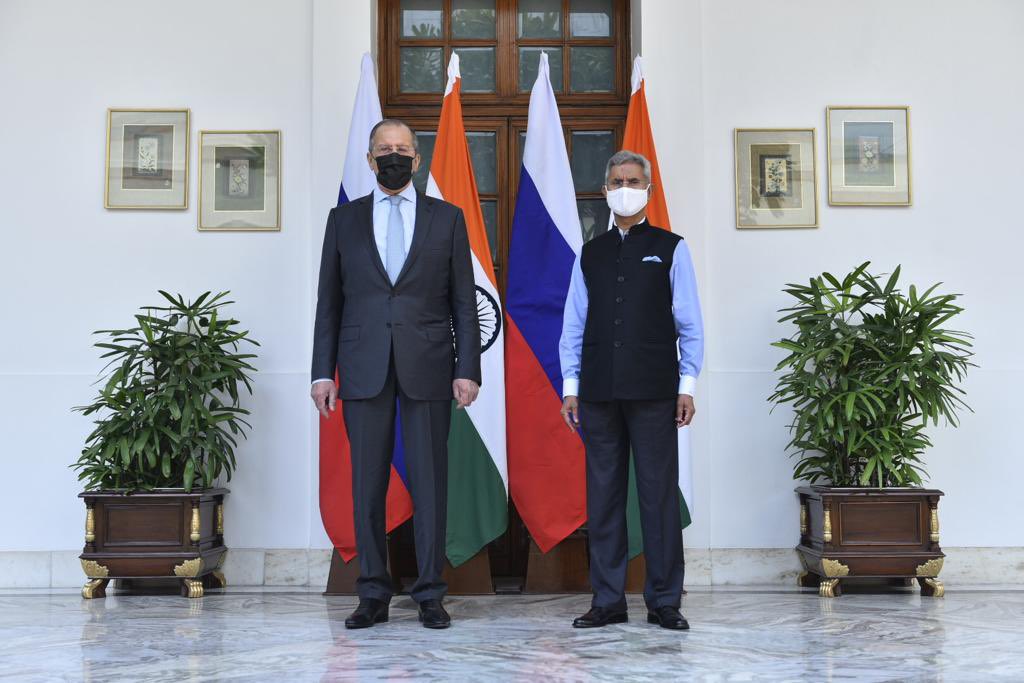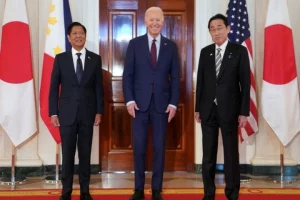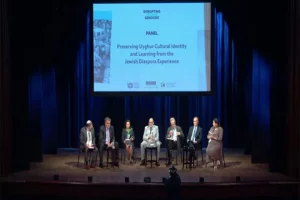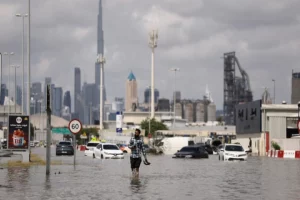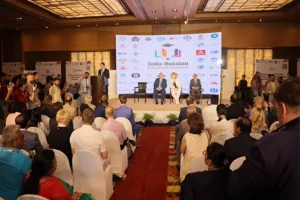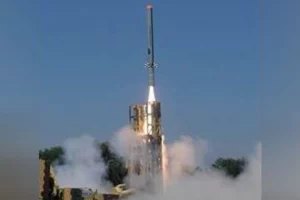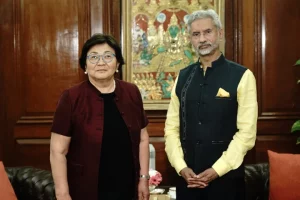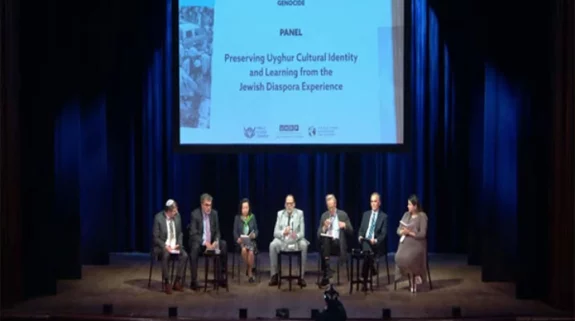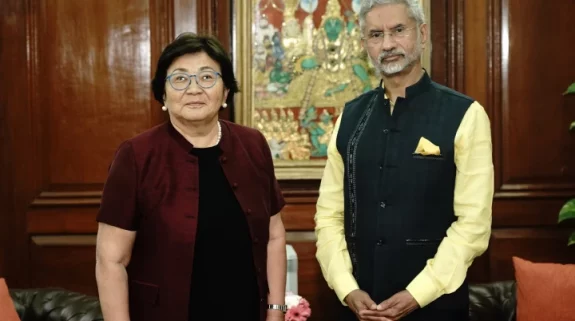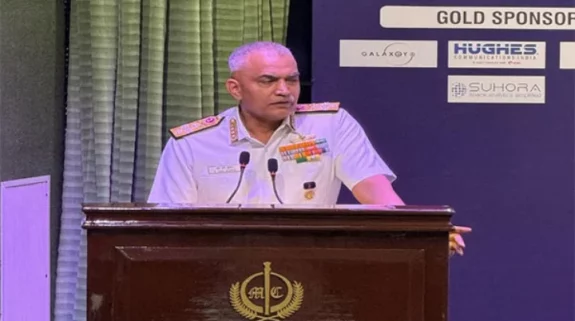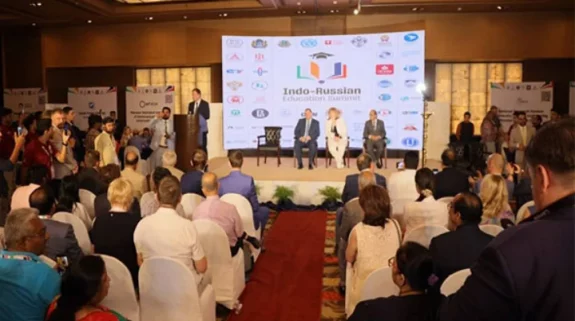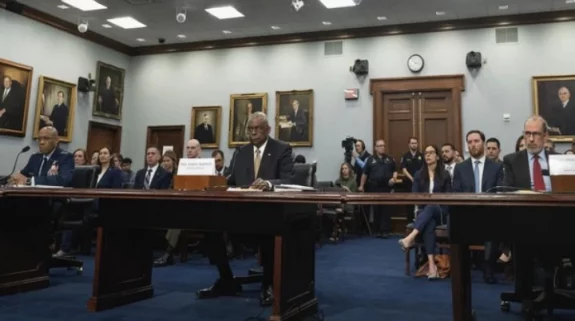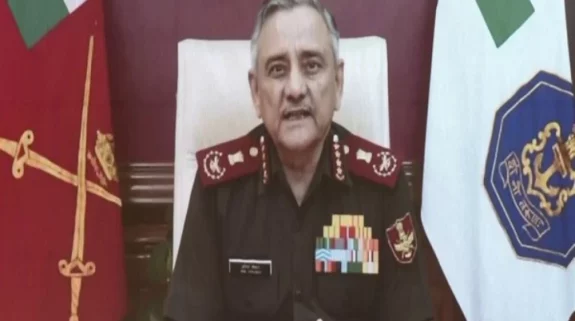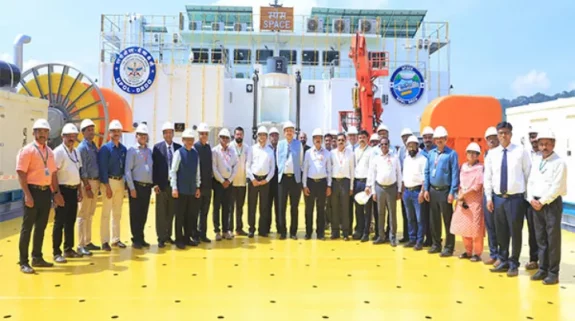India and Russia have decided to focus on further developing the International North South Transport Corridor (INSTC)—a giant undertaking that can rival the increasingly problematic Suez Canal route.
“We spoke of connectivity including the International North-South Transport Corridor and Chennai-Vladivostok Maritime Corridor,” External Affairs Minister S. Jaishankar told the media following his talks with his visiting Russian counterpart Sergey Lavrov.
Russia, Iran, and India have been quietly working on establishing the INSTC–a 7,200 km-long, multimodal trade corridor. The serious disruption caused to traffic flows through the Suez Canal after a container ship went aground, has once again drawn attention to an expanded INSTC as a superior transit option in the years to come.
As it evolves, the INSTC is adding vital new spurs, fast emerging as a gigantic enterprise, which links South Asia and West Asia with the beating heart of the Eurasian mainland.
“The North-South corridor is a great option to replace the Suez Canal with a reduction in travel times to 20 days and savings of up to 30 percent,” Iranian Ambassador to Russia Kazem Jalali wrote in a three-language post on his Facebook page late Saturday.
The envoy pointed out that the $9 billion damage to the global economy caused by the Ever-Given container vessel, that got struck and blocked international shipping demonstrates that “the need to speed up the completion of infrastructure and the North-South corridor as an alternative to the route through the Suez Canal has become clear and more important than ever.”
Last month India and Iran celebrated Chabahar day, where Jaishankar proposed the integration of the Chabahar Port with the INSTC. “I am hopeful that during the INSTC Coordination Council meeting, member-states would agree to the expansion of the INSTC route to include the Chabahar Port and also agree on expanding the membership of this project.”
The INSTC project came into being in 2002, when the transport ministers of Russia, Iran, and India signed an agreement to establish a 7200 kilometer multimodal ship, rail and road-based transport network. Starting from Mumbai, it would head to Moscow via Iran and the Caspian Sea.
Currently, the INSTC is set to spread its radials on a much bigger area. Essentially the new INSTC is a combination of two corridors. One starts as originally conceived, from Mumbai and heads to Bandar Abbas, a famous Iranian port in the Gulf. From here it takes the overland route to Bandar Anzali, which is on the Caspian Sea coast. Containers are off-loaded here and shipped through the Caspian to its Russian shore at Astrakhan, which becomes the base of further transportation in Eurasia. Over time other countries have been networked in this rapidly mutating corridor including Azerbaijan and Armenia.
The second corridor or the Chabahar route begins at Mumbai, but Gujarat’s Mundra port is more prominently in play. From here it heads to Chabahar, Iran’s only Indian Ocean port, which has vast potential. From Chabahar, in which India is pitching major investment, the route heads towards Afghanistan via Iran’s Sistan Baluchistan province along a recently India-built road. Over time, a railway is also envisaged, which will link Chabahar with the Hajigak iron ore mines in Afghanistan, where India has made a major investment.
Planners of the INSTC now want to link the two routes into a huge undertaking that will allow landlocked regions of Eurasia, not only to access the rapidly congesting Bandar Abbas, but also the rapidly expanding Chabahar route.
During his conversation with Lavrov, Jaishankar also flagged the necessity of developing the Vladivostok to Chennai maritime corridor to enhance trade with the resource-rich Russian Far East region.
The new route has come into focus following Prime Minister Narendra Modi’s visit to Russian eastern port city of Vladivostok in 2019. During that visit PM Modi announced that New Delhi would pitch in a $1 billion loan to foster the region’s development as well as establishing the new maritime corridor. Unlike the European sea route which takes 40 days, the new corridor will consume only 24 days.
During a recent visit to Moscow, India’s Foreign Secretary, Harsh Shringla repeated India’s deep interest in Russian Far East, a region which President Vladimir Putin wants to develop as a signature initiative. “We see that as a very high potential area, where we can develop new sectors and help companies looking to invest in new areas such as coking coal, timber, liquid natural gas,” he said during an address to the Russian Diplomatic Academy. “There is huge potential there.”
India’s deepening interest follows major Chinese inroads in the region. Over the past several years, China has emerged as the Far East’s primary foreign investor and trading partner. In 2019, the country accounted for over 70% percent of all direct foreign investment in the region and 28.2% of its foreign trade.
To counter China’s heft, India is keen to bring wealthy Japan to the Far East table. Earlier this year delegates from India, Japan and Russia concluded their first Track II negotiation to nail Far East projects. The trio has identified energy, coal mining, diamond processing, forestry, agro-industry, transportation and pharmaceuticals as areas for a trilateral partnership. “Everyone understands that relying on China as a monopolistic buyer is very dangerous,” Artyom Lukin, a professor of international relations at Russia’s Far Eastern Federal University was quoted as saying the Nikkei Asia. “It is here that the interests of Russia and India converge. There is a real opportunity for India to position itself as an alternative to China on a whole range of important export goods.”
During his interaction with the media, Lavrov clarified that Moscow was not seeking a military alliance with China. "Russia China relations are at highest level in history but we are not discussing military alliance. We also heard of military alliances being promoted such as Middle East NATO/Asian NATO. Indian friends have the same position. We believe it is counterproductive," Lavrov observed.






